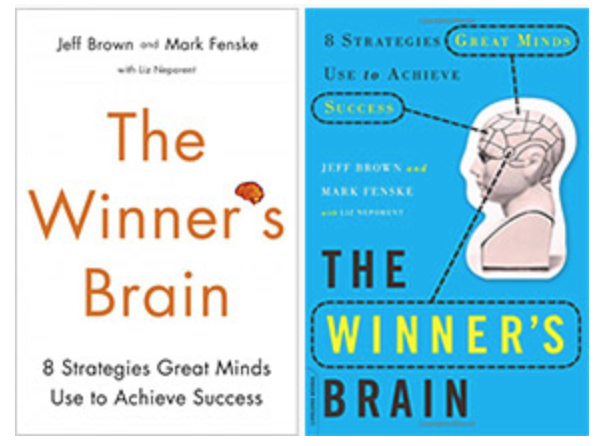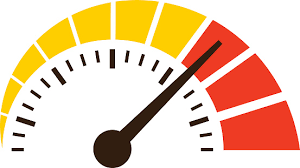Do you have a Winner’s Brain?
AUTHOR:Nicole Greisman
Do you have a Winner’s Brain? Read below to learn more about a few key concepts from the book, The Winner’s Brain: 8 Strategies Great Minds Use to Achieve Success, and a quiz to determine how effectively you position yourself towards the achievement of your goals.

Dr. Mark Fenske (University of Guelph) is one of my favourite professors from my undergraduate years. He teaches courses in cognitive neuroscience, and his research combines neuroimaging techniques with studies of human behaviour to examine factors that are critical for healthy cognitive and emotional functioning. I enjoyed his classes so much that I decided to read his co-authored book, The Winner’s Brain.
I recently revisited this book since starting graduate school and thought a brief synopsis could be of value to some of the students in our program who may be looking to improve their habits or mindset to better achieve their goals. The concepts in this book are heavily supported by examples based on scientific evidence from cognitive neuroscience research, as well as research in cognitive behavioural therapy. The authors interviewed successful individuals from a variety of disciplines and identified which behaviours they exhibited in common, allowing them to be distinguished from their less successful professional peers. Among these interviewees included a rock star turned doctor, a comedian, an actress, an Olympic athlete and a pilot. Surprisingly (or not so surprisingly) intelligence was not a factor that distinguished these individuals from others in their field. These people were not necessarily smarter than the average person, but all had some things in common to which they could attribute their success. The authors deemed these factors ‘BrainPower Tools’. The BrainPower tools they identified from their careful examination of these high-achievers were:

Goal Laser - the ability to highly focus on a specific goal.
Studies have indicated that those who displayed the highest levels of initiative were also most likely to translate their goals into action.

Talent Meter - the ability to recognize what you are good at, and what you are not good at.
A finely tuned talent meter also means being aware of weaknesses; if you don’t realize that you have gaps in your abilities (and let’s be honest, everyone does) then it may never occur to you that you are able to improve.

Optimal Risk Gauge - the ability to recognize when a risk is worth the reward.
They are able to recognize whether or not they are willing or able to pay the consequences if failure arises because of this risk.

People with remarkable opportunity radars recognize that opportunities are not always obvious - usually they are hidden beneath a problem or idea that many others have missed; for example, the Swiss engineer who invented Velcro after examining thistle burrs caught in his dog’s fur.
Winner’s Brains tend to have the ability to stay open-minded and creative in the face of problems; therefore, they tend to search for and recognize good opportunities to put themselves further ahead when others may not.

Effort Accelerator - the drive to continue overcoming obstacles and sidestepping distractions as you move towards achievement.
Individuals who score high on the persistence scale (showing activity in brain reward regions associated with motivational drive) are able to perform well even when tasks are tedious and unmotivating.
This book includes eight strategies to maximize your BrainTools to achieve a Winner’s Brain, by utilizing what the authors have deemed ‘Win Factors’. These factors include self-awareness, motivation, focus, emotional balance, memory, resilience, adaptability, and brain care. I have included here a short quiz (taken directly from The Winner’s Brain) to help give you a personal indication of how much of a Winner’s Brain you have, and what BrainPower tools you may need to work on to optimize your pathway to success.
I would recommend reading this book to anyone interested in the brain, and in improving their behaviour to better achieve success!
QUIZ TIME: Do You Have a Winner's Brain?
Points:
Do not agree at all (1 point)
Somewhat agree (2 points)
Completely agree (3 points)
Award yourself 1-3 points for each question, and then tally up your total score.
Goal Laser:
1) Nothing ever distracts me from my goals.
2) I strive for my goals until I reach them - no matter what.
3) I always see a project through to the end.
Optimal Risk Gauge:
4) I easily tolerate being outside of my comfort zone.
5) My decisions never lead to regret.
6) If something’s too good to be true, then it usually is.
Talent Meter:
7) If I’m not good at something, I find out how to improve.
8) I can accurately identify potential in others and myself.
9) It’s easy for me to recognize what I don’t know.
Opportunity Radar:
10) I’m good at finding solutions when none seem to exist.
11) When something goes wrong, I try not to see the failure, but opportunity in setback.
12) When I try something and it doesn’t work out the way I want it to, I reboot and find a new way to come at the problem.
Effort Accelerator:
13) I can motivate myself easily.
14) I rarely procrastinate.
15) Even if I’m last place, I find the strength to finish the race.
_____________________________________________________________________________________
Score:
40-45: You’ve got a head start: this book will help you put it all together.
39-30: You’re getting there but still have room for growth.
29-20: You’re just starting out, but you can get there. You probably have an awareness of your own potential, but feel like you may not be quite achieving it.
20 and below: You may feel as if you will never be successful - of course you can! Like almost everyone, you have the raw materials it takes to get what you want from life, you just need some help developing the strategies and skills to get there.